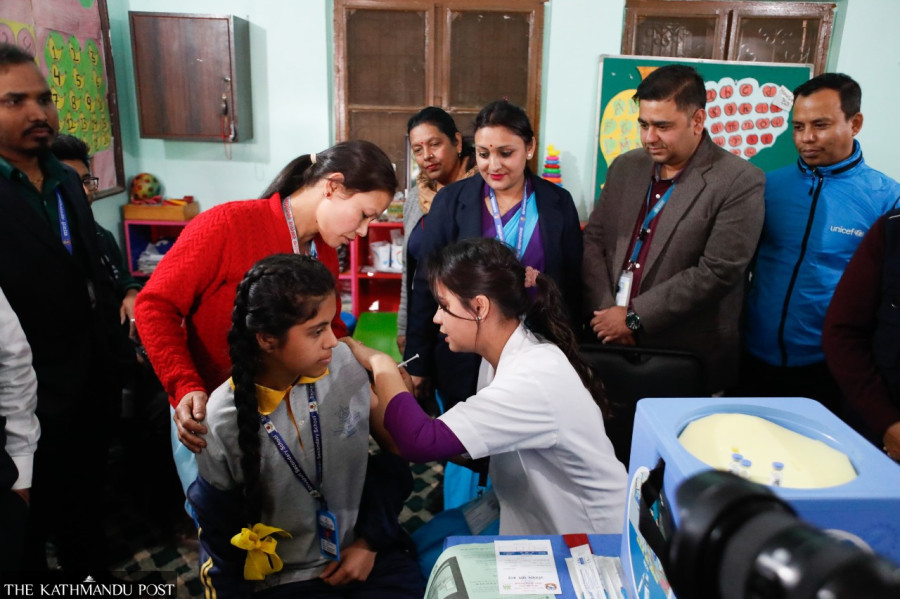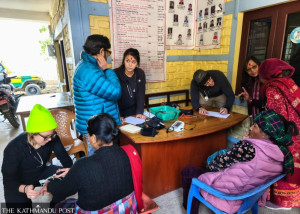Health
HPV vaccination drive starting in Manang and Mustang next week
Winter delayed drive in some mountain districts. Humla and Dolpa will follow in mid-March.
Post Report
Starting next week, the government is launching a human papillomavirus (HPV) vaccination campaign in some mountain districts where the nationwide drive earlier this month could not be conducted due to harsh winter. The campaign will begin in Manang and Mustang, targeting around 5,000 girls aged 11 and 14 years.
“HPV vaccination drive in Manang and Mustang districts will be launched from next week,” said Dr Abhiyan Gautam, chief of the immunisation section at the Family Welfare Division under the Department of Health Services.
In Humla and Dolpa, the vaccination drive may start only after the second week of March, according to Gautam.
Human papillomavirus is a viral infection that spreads through skin-to-skin contact and is a leading cause of cervical cancer—the second-most common cancer in the developing world. Cervical cancer is a major cause of death among Nepali women, with hundreds diagnosed every year.
The Health Ministry launched a nationwide HPV vaccination drive on February 4, targeting girls between 11 and 14 years of age, which continued until February 18.
The government aimed to jab a total of 1,688,768 girls in the age group with a single dose of the human papillomavirus (HPV) vaccine during the campaign.
So far, 1,440,500 girls have been administered with the vaccine, officials said.
As many as 18,900 schools around the country were designated as vaccination centres. Additionally, the vaccine doses were administered from 8,200 health facilities. Over 27,000 health workers and more than 54,000 female community health volunteers (FCHVs) were deployed for the campaign.
The Global Alliance for Vaccine and Immunisation (GAVI) has supplied 1,770,400 vaccine doses for the campaign. Officials say the alliance has also provided funds to cover the campaign’s operational costs.
Gautam said that the campaign was extended for a few days in the areas with low uptake. Major cities, including Kathmandu Valley and districts of Madhesh Province, had low vaccine uptake during the campaign.
“Health workers are still working to trace girls of the target group, who did not receive the vaccine due to various reasons,” said Gautam.
Though the exact number of patients suffering from cervical cancer in Nepal is not known, it is estimated that every day, at least four women die of cervical cancer in the country.
BP Koirala Memorial Cancer Hospital in Bharatpur said that more than 700 women suffering from cervical cancer seek treatment at the hospital every year.
Experts say early treatment can prevent up to 80 percent of cervical cancer cases.
The government has decided to include the HPV vaccine in the routine immunisation list following the completion of the nationwide drive.
The World Health organisation says HPV vaccination is recommended as part of a coordinated strategy to prevent cervical cancer and other diseases caused by the virus.




 10.12°C Kathmandu
10.12°C Kathmandu













